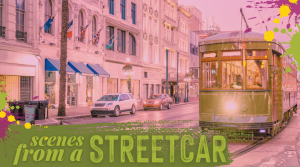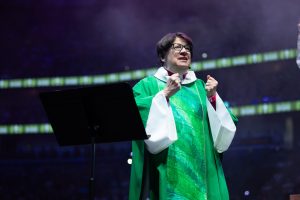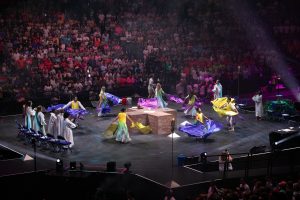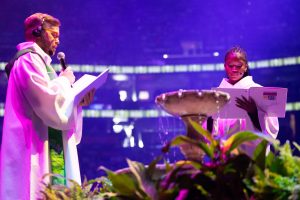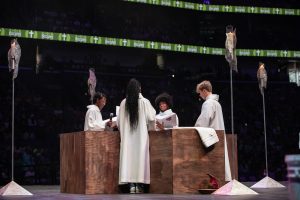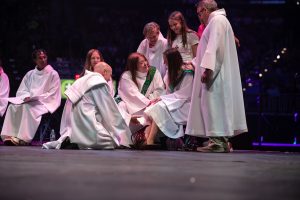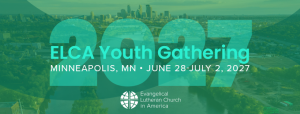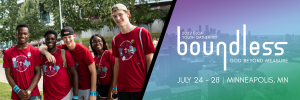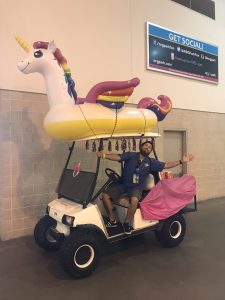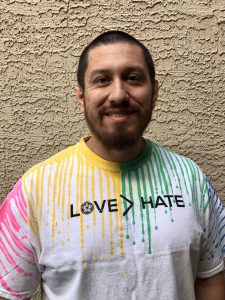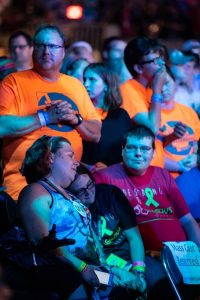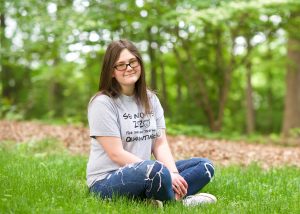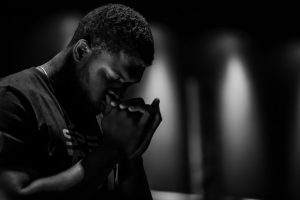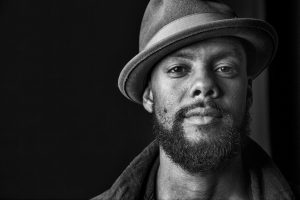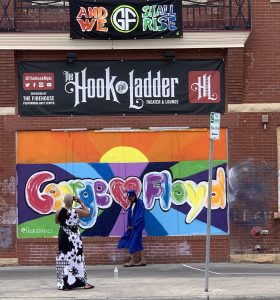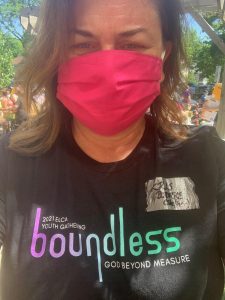Saturday, July 20 – Created to Be Disciples
Today was our closing worship for the 2024 ELCA Youth Gathering, and what a week it has been! This Gathering, filled with deep and meaningful conversations, laughter, and the Spirit’s palpable presence, has truly transformed us all.
Throughout the week, we’ve heard from incredible speakers who each brought something unique and necessary to our hearts. Walking through the streets, engaging in Community Life, and participating in Interactive Learning, I witnessed groups buzzing with excitement and deep reflection. This Gathering, and the vibrant city of New Orleans, have challenged, supported, and inspired us in ways only this experience could.
Presiding Bishop Elizabeth Eaton captured the essence of our journey during the final morning’s worship. She declared, “We made it! What a week! We’ve learned a lot, we met new people. We’ve learned about how it rains in New Orleans all the time. So now here we are—we’ve been brave, authentic, free, disruptive…and now we’re going to be disciples.”
Bishop Eaton shared the story of the Good Samaritan, reminding us that our neighbors are not just those we choose, but anyone God places in our lives.
She emphasized, “We don’t get to pick and choose who those people are. Those people are whomever God sends to us in our lives—people we might never ever meet.”
Friends, I have to share a story with you about a man, who I now know is named Robert. This is one of those stories that intersects in ways that only the Holy Spirit can orchestrate:
On Friday morning, I was running late to the convention center. As I hurried out of the hotel, I smiled at a man sitting in a wheelchair on the corner of the street. He said something to me, but I didn’t quite hear him. Despite my rush, I felt compelled to stop. This kind man looked at me with caring eyes and asked me to help him put his shirt on. As I helped him, I noticed it was a blue shirt given to him by another group from the Gathering. We exchanged smiles, and I wished him well before continuing on my way.
Later that day, in the Interactive Learning space, I met a group from Christ Lutheran Church in Brenham, TX. When telling me about their Gathering highlights, they shared their own encounter with a man they had met just that morning. Their youth group had stopped to give a man wearing a blue shirt bracelets and pray with him. My eyes widened as Avery continued the story. Their youth leader, Sharon, asked this man his name, and the group prayed for him, leaving with hearts full of God’s love. As they walked away reflecting on their encounter, Stephen shared how he and his group were reminded of Austin Channing Brown’s powerful message from the previous night. Her words about addressing the root of issues rather than trying to change individuals deeply resonated with them. I learned the name of this man in the blue shirt, now adorned with Gathering bracelets, name is Robert.
If this was all there was to the story, it would be remarkable! The connections continued as Sharon sought me out later to tell me more. You see, later in the afternoon, this group from Brenham, TX, learned even more to the story. They encountered Silas, who had handed the man wearing a blue shirt and Gathering bracelets, a cup of water while they were praying for him. Silas Kulkarni, Director of Strategy and Advocacy of the ELCA Advocacy in Washington, DC and one of the organizers of the ELCA Advocacy booth, recounted that in his busy morning, he was also late to the convention center. But having been asked for a cup of water, Silas knew helping this man was more important than being on time. And now Silas knows Robert’s name, too. And so do you.
Pastor Emily Harkins from the Dwelling spoke about the importance of being known by name. “When we truly see one another, then and only then, will we truly see Jesus. See me. See you. See them. See us. See Jesus.” In Robert’s kind eyes and brilliant smile, we all saw Jesus that morning.
This living Good Samaritan story beautifully exemplifies the message Bishop Eaton preached about in closing worship. It’s a testament to how we are called to be disciples, recognizing and loving our neighbors, regardless of our differences. This encounter with Robert brought the teachings of this week to life, demonstrating how we can be the hands and feet of Jesus in our everyday actions. Through the spirit of courage, compassion, and community, we are called to disrupt what is wrong and work for what is right, seeing Jesus in everyone we meet.
This week, we’ve heard powerful stories and testimonies of the Holy Spirit at work. We’ve danced like no one was watching, sang at the top of our lungs, witnessed moving lyrical dances, tasted the rich flavors of New Orleans, and immersed ourselves in its vibrant culture. This past week at MYLE, the tAble, and the Gathering has been life-changing. As Joe Liles told us at the beginning of the week, we are leaving as new people. We are changed, and friends, we ARE!
Now, in the words of Joe:
We must Walk. This. Out. in our own unique ways.Walk this out with the Spirit of Courage to serve in new places. Walk this out with the Spirit of Conversation to engage with those we’ve never met. Walk this out with the Spirit of Challenge to embrace uncomfortable faith. Walk this out with the Spirit of Curiosity to ask God who you are becoming.
As you leave New Orleans and return home, carry with you the Spirit of bravery, authenticity, freedom, and disruption. Be the disciple God has called you to be.
Until we meet again in 2027 in Minneapolis for our big Lutheran family reunion, remember who you are Created to Be—wHoly and beautifully, loved and beloved.

